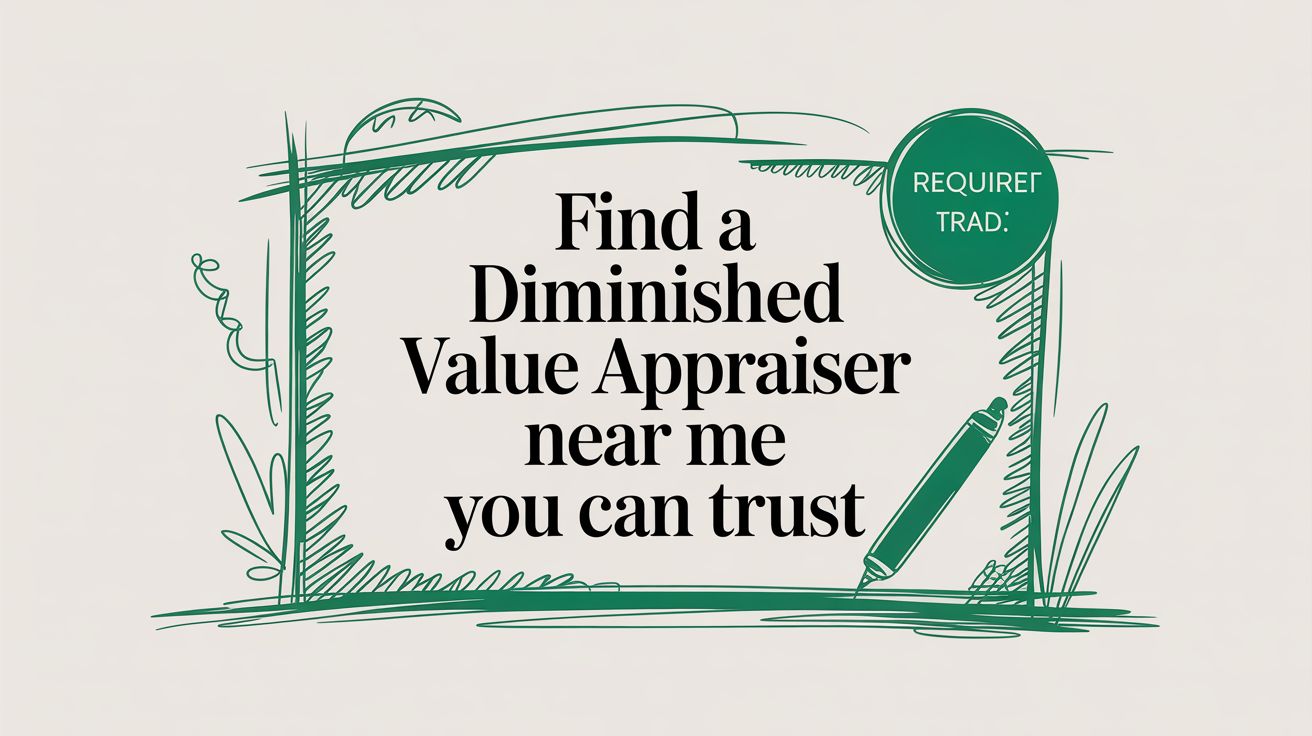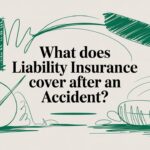Has your car been in an accident? If you’re searching for a “diminished value appraiser near me,” you already know that getting your car repaired is only half the battle. Finding an independent expert who understands your local market is the key to proving your car’s lost value and recovering the compensation you deserve.
Click here to find and learn more about diminished value appraiser near you
Why Finding a Local Diminished Value Appraiser Is So Critical
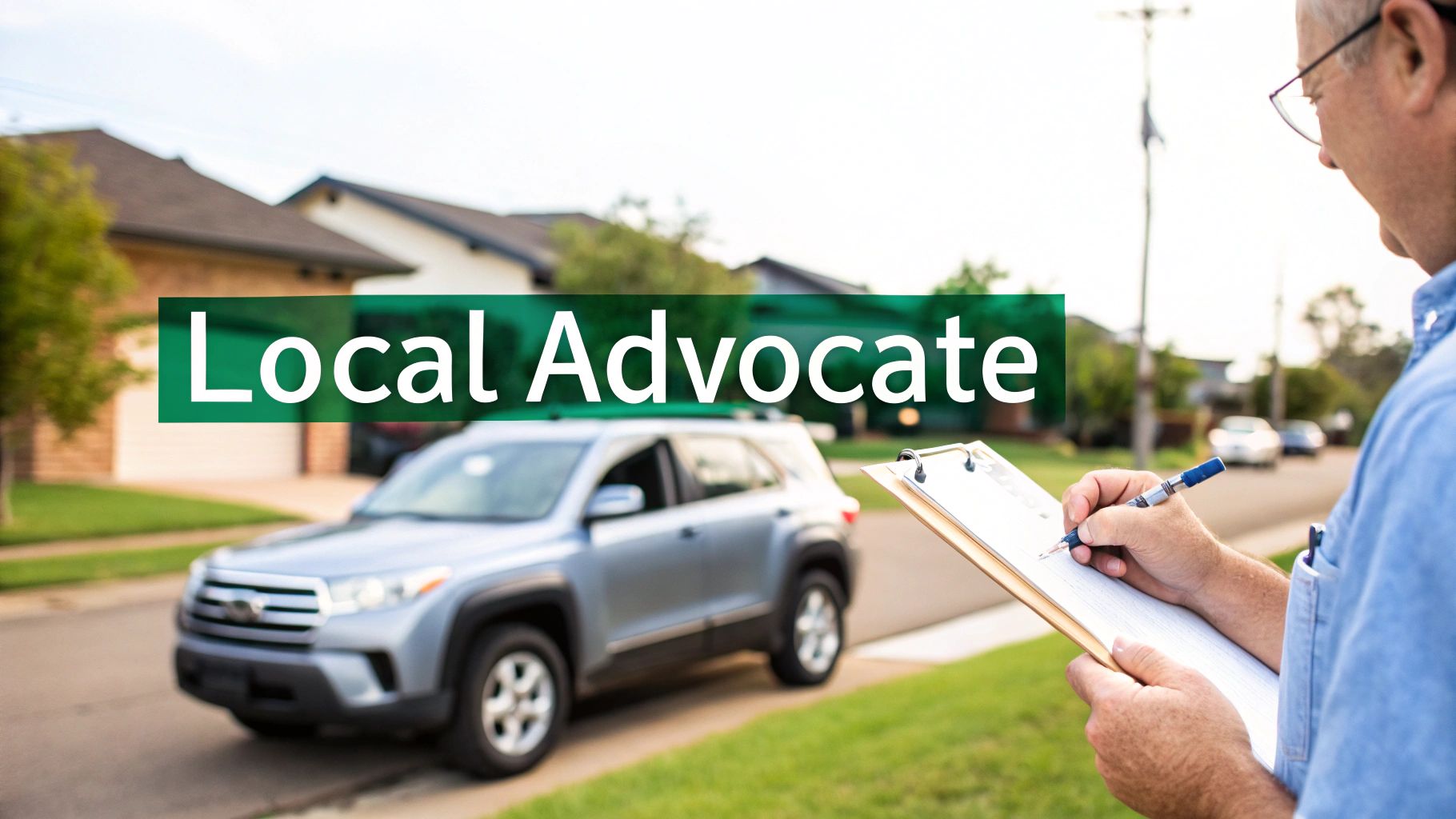
After a collision, your vehicle suffers from diminished value—the loss in its resale price simply because it now has an accident history. Even with perfect repairs, a potential buyer will pay less for a car that’s been in a wreck compared to one with a clean record. This is a real, measurable financial loss.
For example, a three-year-old SUV worth $32,000 before a crash might only sell for $28,400 after top-notch repairs. That $3,600 gap is your diminished value. This isn’t just an opinion; it’s a market reality. To learn more about how market shifts affect vehicle prices, you can discover more insights about car depreciation on Diminished Value of Georgia.
The Insurance Company’s Goal vs. Yours
Insurance companies are businesses focused on minimizing payouts. They often use generic formulas or their own “preferred” appraisers to produce reports that favor their bottom line, aiming to close your claim for the lowest possible amount.
Your goal is different: you want to be made whole for your entire financial loss. This is why finding an independent diminished value appraiser near me is essential. A third-party expert works for you, not the insurance company. They provide an unbiased, data-backed analysis based on:
- Local Market Data: How much are comparable cars actually selling for in your specific area?
- Severity of Damage: Was there structural or frame damage involved?
- Vehicle-Specific Factors: Your car’s make, model, mileage, and pre-accident condition.
An independent appraisal report from SnapClaim transforms your claim from a simple request into a documented, evidence-based demand. It provides the proof you need to negotiate fairly and recover a fair settlement for your car value after accident.
How to Spot an Expert Diminished Value Appraiser
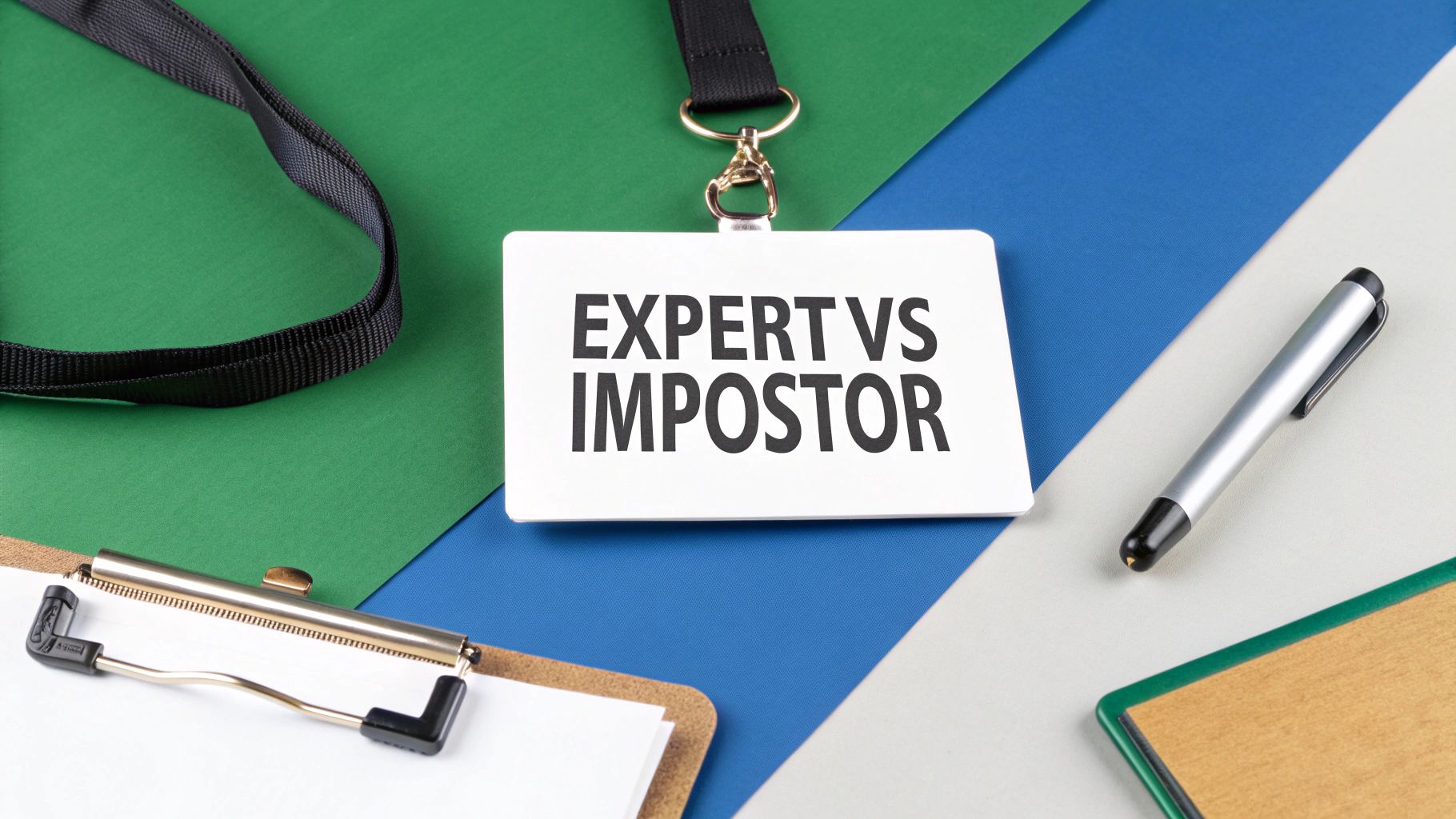
When searching for a diminished value appraiser near me, you’ll find that not all experts are created equal. Some appraisers have relationships with insurance companies, and their reports may reflect that bias. Your task is to find a true consumer advocate.
The difference often comes down to their methodology. Many appraisers use outdated, insurer-friendly formulas to calculate lost value. The most notorious is the 17c formula, a flawed calculation that arbitrarily limits diminished value. You can read the full analysis of diminished value estimations on KBB.com to understand why these methods fall short.
A true expert, like those at SnapClaim, never uses a cookie-cutter formula. We perform a detailed, market-driven analysis tailored to your specific vehicle and location.
Look here to find diminished value appraiser near you
Verify Key Credentials and Experience
A legitimate appraiser’s reputation is built on their qualifications. Look for recognized industry certifications, as these demonstrate a commitment to standardized, high-quality work.
Before hiring anyone, use this checklist to vet them.
Key Credentials for a Reputable Appraiser
| Credential or Quality | Why It Matters | Red Flag to Watch For |
|---|---|---|
| I-CAR Certification | Shows advanced knowledge of modern vehicle repair processes. | Dismissing the need for repair knowledge. |
| ASE Certification | The gold standard for automotive technician competence. | No hands-on automotive background. |
| State Licensing | Confirms they can legally operate in your state (where required). | Unwillingness to provide a license number. |
| Local Market Expertise | Familiarity with local sales data gives you a huge advantage. | Only provides generic, national data. |
| Positive Reviews | Testimonials from past clients prove they deliver results. | Vague or non-existent client feedback. |
Beyond certifications, ask about their direct experience. A crucial question is: “How many diminished value claims have you handled in my state?” Local knowledge is a game-changer. SnapClaim’s appraisers understand regional used car markets and the tactics of local insurance adjusters, allowing us to build a report that proactively addresses common objections.
Scrutinize Their Valuation Methodology
A solid appraisal report must be strong enough to withstand scrutiny from an insurance adjuster. The strength of your diminished value claim rests entirely on the quality of the evidence.
Before you hire an appraiser, ask them to explain their process. A professional should easily describe how they determine your car value after accident. Their answer should include:
- Analyzing comparable vehicle sales in your local market.
- Assessing the severity and type of damage.
- Factoring in the stigma of an accident history on reports like CarFax.
If their explanation is vague or relies on a simplistic formula, it’s a sign to look elsewhere. You’re investing in a defensible, data-driven report that supports your case for fair compensation.
Proven Methods for Finding Local Appraisal Experts
So, how do you find a reputable diminished value appraiser near me who will advocate for you? A simple Google search is a good start, but you need to dig deeper.
Instead of a generic search, be specific. Try terms like “[Your City] auto diminished value report” or “certified vehicle appraiser in [Your County].” This helps filter out generalists and highlights the specialists you need. A professional online presence is often a good indicator of a reliable business. This complete guide to local listings on Google explains how experts ensure they are visible online.
Look Beyond the Search Bar
Some of the best recommendations come from professionals in the auto industry. They know which appraisers produce reports that insurance companies take seriously.
Here are the people you should talk to:
- Trusted Collision Repair Shops: Ask the manager of a high-end, independent body shop for a referral. They see which appraisers get the best results for their customers.
- Consumer Rights or Personal Injury Attorneys: These professionals know which appraisers have a strong reputation for producing court-accepted reports.
- Local Car Clubs and Enthusiast Groups: Members are passionate about their cars’ value and can often point you toward appraisers they trust.
Vet Your Shortlist with Online Due Diligence
Once you have a few names, do some online research. Go beyond star ratings to understand the details.
Check their Better Business Bureau (BBB) rating and any customer complaints. A clean BBB record is a strong signal of professionalism. Next, read reviews on Google and Yelp. Look for recurring themes in the comments. Do clients mention the appraiser’s professionalism, the report’s detail, or their success in increasing an insurance settlement?
Finally, review their website. It should be professional and transparent. A site that educates you and demonstrates confidence in its work is a positive sign. By combining real-world referrals with online vetting, you can find a diminished value appraiser near me with the expertise to build a winning claim.
The Questions You Must Ask Before Hiring an Appraiser
Once you have a shortlist, it’s time to interview potential appraisers. Treat this step like hiring a key team member for an important project. Asking the right questions will help you find a true expert who can build a case that stands up to insurance company pressure.
A true professional will be confident in their process and happy to explain it. They know their methods get results and aren’t afraid to show you why.
Uncovering Their Methodology and Experience
First, dig into the appraiser’s process and their experience with claims like yours. This separates the seasoned pros from those who just use templates.
Start with these crucial questions:
- What is your specific methodology for calculating diminished value? You want to hear about local market analysis, pulling real comparable vehicle sales (comps), and assessing repair quality. If they mention a generic formula like “17c,” move on.
- Can you provide a sample report for me to review? A quality report should be detailed, easy to follow, and filled with verifiable data. See what you’re paying for.
- How much experience do you have with [Your Insurance Company]? An appraiser familiar with specific carriers can anticipate their arguments and build a stronger report.
- Are you licensed and certified? Ask about credentials like I-CAR or ASE certifications, which add credibility by demonstrating technical expertise.
These questions will give you a clear picture of an appraiser’s skill and strategy when building a diminished value claim.
Understanding the Logistics and Support
Beyond their expertise, you need to understand the practical aspects of working with them—fees, timelines, and post-report support.
An appraiser’s job doesn’t end with the report. True partners provide support during negotiations, helping you respond to adjuster pushback with confidence and data.
Before making a final decision, ask:
- What are your fees, and what is included? A flat fee is the industry standard, ensuring their assessment is unbiased.
- What is your typical turnaround time for a report? You need someone who works efficiently without sacrificing quality.
- What kind of support do you offer after I submit the report? Will they be available to clarify points if the insurer pushes back? This is critical.
State laws also impact how these claims are handled, as rules vary significantly. For example, some states make it easy to file a claim against the at-fault driver’s policy, while others have more obstacles. You can learn more about diminished value claims by state to understand your local landscape. An appraiser must be an expert in your state’s laws.
How to Prepare Your Case for a Winning Appraisal
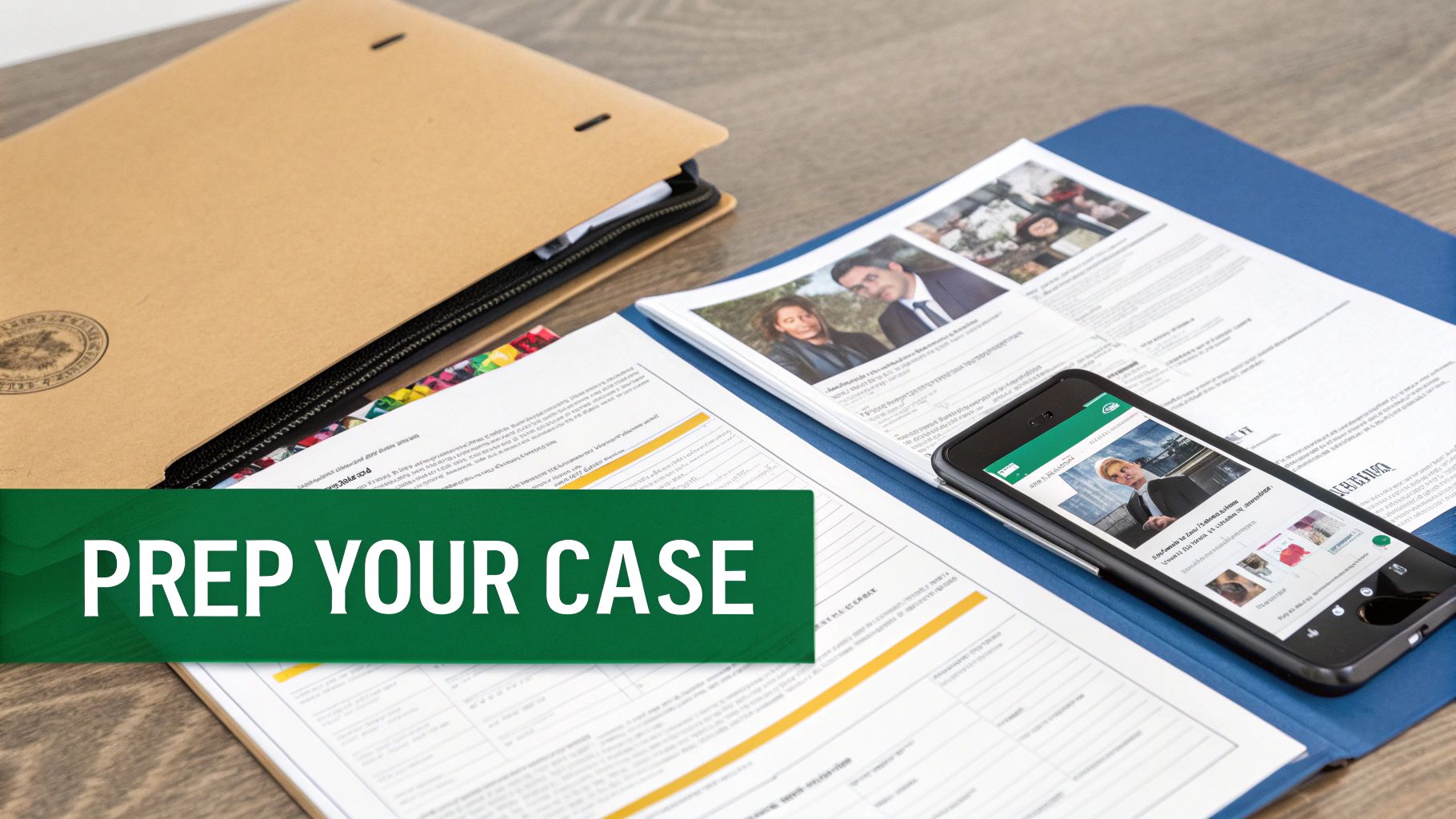
Once you’ve chosen your appraiser, it’s time to gather your documentation. Providing the right paperwork helps your expert build a stronger, more detailed, and successful diminished value claim.
Think of each document as a piece of undeniable proof. A photo of the initial damage or a line item on the repair invoice can add significant weight to your case. This isn’t about doing the appraiser’s job; it’s about giving them all the evidence they need.
Your Document Checklist for Success
To build the strongest possible case, your appraiser needs specific evidence. Pulling these key items together beforehand will speed up the process and ensure no detail is missed.
Here’s the essential documentation your appraiser will need:
- The Police Report: The official record establishing the facts of the accident.
- The Insurance Adjuster’s Estimate: This shows the insurer’s initial (and often low) assessment.
- The Final Repair Invoice: This critical document details every part and hour of labor, proving the extent of repairs.
- Pre-Repair Photos of the Damage: Take pictures from every angle before the shop begins work.
- Post-Repair Photos: Pictures of the finished work show the cosmetic restoration and serve as a reminder of the permanent accident history.
Not sure how much your vehicle’s value has dropped? Get a preliminary estimate with SnapClaim’s free diminished value calculator.
Essential Documents for Your Diminished Value Appraisal
| Document | Purpose | Where to Find It |
|---|---|---|
| Police Report | Establishes fault and official accident details. | The responding police department. |
| Insurance Estimate | Shows the insurer’s initial damage assessment. | The at-fault party’s insurance adjuster. |
| Final Repair Invoice | Details all parts and labor, proving repair scope. | The body shop that performed the repairs. |
| Damage Photos | Provides visual proof of the initial impact severity. | Your phone or camera (take before repairs). |
| Post-Repair Photos | Shows the final condition and cosmetic outcome. | Your phone or camera (take after repairs). |
Having these documents ready shows you are organized and serious about your claim.
Why Every Single Document Matters
This isn’t just paperwork; it’s the foundation of your argument. The final repair invoice, for example, can prove if structural components were bent or if airbags deployed—factors that significantly impact a vehicle’s car value after accident.
A well-documented claim is a powerful negotiating tool. It forces the insurance adjuster to argue against concrete facts, not just your opinion.
By providing your appraiser with a complete file, you give them the ammunition they need to fight effectively for you and strengthen your claim.
Using Your Appraisal to Negotiate with Confidence

Once you have a certified appraisal report, the dynamic of your insurance claim changes. You are no longer just asking for money; you are presenting documented, professional proof of a financial loss. This is where your investment in a quality appraisal pays off.
When you submit the report, keep your communication firm but polite, always referencing the facts presented in the document.
Opening the Negotiation
Start with a clear, concise demand letter or email. Attach the full appraisal report and state the diminished value figure calculated by your appraiser. Your argument rests on the market data and expert analysis in the report.
If the adjuster tries to push back, your response should be: “Can you please show me specific, data-backed evidence that proves my certified appraisal is incorrect?” A vague excuse like “we don’t agree” is not a valid rebuttal.
Don’t be surprised if the adjuster returns with a low counteroffer. Politely reject it and reiterate that your claim is backed by a certified, data-driven car appraisal after accident. Ask them to explain, line by line, where they disagree with your appraiser’s findings. Often, they cannot.
Peace of Mind with a Money-Back Guarantee
Negotiations can be stressful, but having the right evidence removes much of the anxiety. At SnapClaim, we stand behind our reports so strongly that we eliminate the financial risk for you.
Our promise is simple: “If your insurance recovery from the claim is less than $1,000, SnapClaim refunds the full appraisal fee — guaranteed.”
This guarantee allows you to confidently invest in the proof you need to build a rock-solid claim. You can focus on securing a fair settlement without worrying about the cost of the appraisal itself.
Frequently Asked Questions (FAQ)
Can I claim diminished value if the accident was my fault?
Generally, you can only file a diminished value claim against the at-fault party’s insurance policy. If you caused the accident, your own insurance policy (a first-party claim) almost never covers this type of loss. It’s always best to check your specific state’s laws to be sure.
How much does a diminished value appraisal cost?
A professional, independent appraisal typically costs between $250 and $500. This fee covers the detailed market research and analysis needed to build a strong case. Be wary of unusually cheap services, as a low price often means a low-quality report that won’t stand up to scrutiny. Learn more in our guide on the cost of a diminished value appraisal.
What if the insurance company ignores my appraiser’s report?
An insurer cannot simply ignore a certified appraisal without providing a valid, data-backed reason. If they do, it may be a sign of bad faith negotiation. A credible appraiser, like those at SnapClaim, will provide support to help you respond to the insurer’s objections. If the insurance company still refuses to negotiate fairly, you may consider filing a complaint with your state’s Department of Insurance.
Get Your Free Estimate Today
Get your free estimate today or order a certified appraisal report to strengthen your insurance claim.
About SnapClaim
SnapClaim is a premier provider of expert diminished value and total loss appraisals. Our mission is to equip vehicle owners with clear, data-driven evidence to recover the full financial loss after an accident. Using advanced market analysis and industry expertise, we deliver accurate, defensible reports that help you negotiate confidently with insurance companies.
With a strong commitment to transparency and customer success, SnapClaim streamlines the claim process so you receive the compensation you rightfully deserve. Thousands of reports have been delivered to vehicle owners and law firms nationwide, with an average of $6,000+ in additional recovery per claim.
Why Trust This Guide
This guide was reviewed and verified by SnapClaim’s auto appraisers, who specialize in diminished value and total loss disputes.
Our team continually updates every article to reflect current insurer guidelines, valuation standards, and court-accepted appraisal practices, ensuring that you’re relying on information trusted by professionals nationwide.
Get Started Today
Whether you’re challenging a low total loss settlement or proving your vehicle’s post-repair loss in value, SnapClaim makes it simple to take the next step.
Generate a free diminished value or total loss estimate in minutes and see how much compensation you may be owed.
👉 Get your free diminished value estimate today

